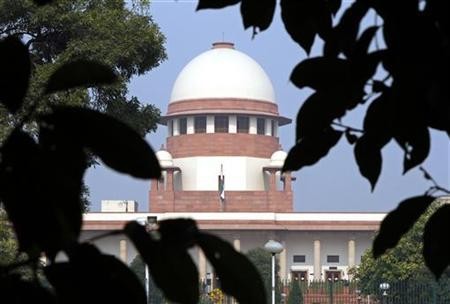
State governments in the country have been asked by the Supreme Court to restrain from exercising their power of remission to release jailed convicts with life-term imprisonment.
The Supreme Court on Wednesday, 9 July, also asked the States' response whether they needed the Union government's permission before granting remission to convicts prosecuted by national investigative agencies like Central Bureau of India (CBI), The Hindu reports.
It can be recalled here that recently Tamil Nadu government had passed an order proposing remission of life sentence-served convicts in Rajiv Gandhi assassination case, but the Supreme Court has asked the State to maintain status quo till further orders.
Notices to all states have been issued in this regard by a five-judge Constitution Bench, led by the Chief Justice RM Lodha. It also comprises Justices-JS Khehar, J Chelameswar, AK Sikri and Rohinton Nariman.
The Bench asked the states to file their responses within 18 July, to enable the apex court to hear the matter by 22 July, when the case related to the release of life convicts in the Rajiv Gandhi assassination would be heard.
In its interim order, the Bench ruled: "Meanwhile, state governments are restrained from exercising the power of remission for releasing life convicts till the next date of hearing."
After hearing Solicitor-General Ranjit Kumar, the Bench issued seven questions to the states and asked them to respond within 18 July.
Following the Tamil Nadu's order to remit convicts of Rajiv Gandhi assassination and release them, the Centre had challenged the state government's order in the apex court.
Then the SC, on 20 February, stayed Tamil Nadu's order to release three convicts - Murugan, Santhan and Arivu - whose death sentences in Rajiv Gandhi assassination case had been commuted to life terms on 18 February.
Later, the release of four other convicts - Nalini, Robert Pious, Jayakumar and Ravichandran - was also stayed by the apex court, ruling that there were procedural lapses on the government's part.
Later, when cases with similar convicts, including the Red Fort attack case, came before the SC, Solicitor-General Ranjit Kumar submitted that the Tamil Nadu government has no power to exercise jurisdiction in cases handled by Central investigation agencies like CBI.
One of the convicts in Rajiv Gandhi assassination case, Nalini Sriharan, has now moved the Supreme Court, challenging Section 435 Cr PC, which facilitates consultation with the Centre before a State government exercises its remission powers to release life-sentenced convicts.
Nalini has pointed out that she has already undergone 23 years of imprisonment in the Special Prison for Women, Vellore, and urged for premature release along with other co-convicts in the case.
The Tamil Nadu government, on 19 February, proposed to remit Nalini's life imprisonment and release her and six others in the case.
Responding to the Centre's petition against Tamil Nadu's proposal to release Nalini and other convicts, the SC, on 20 February, asked the state to maintain status quo in its decision to release the convicts.














